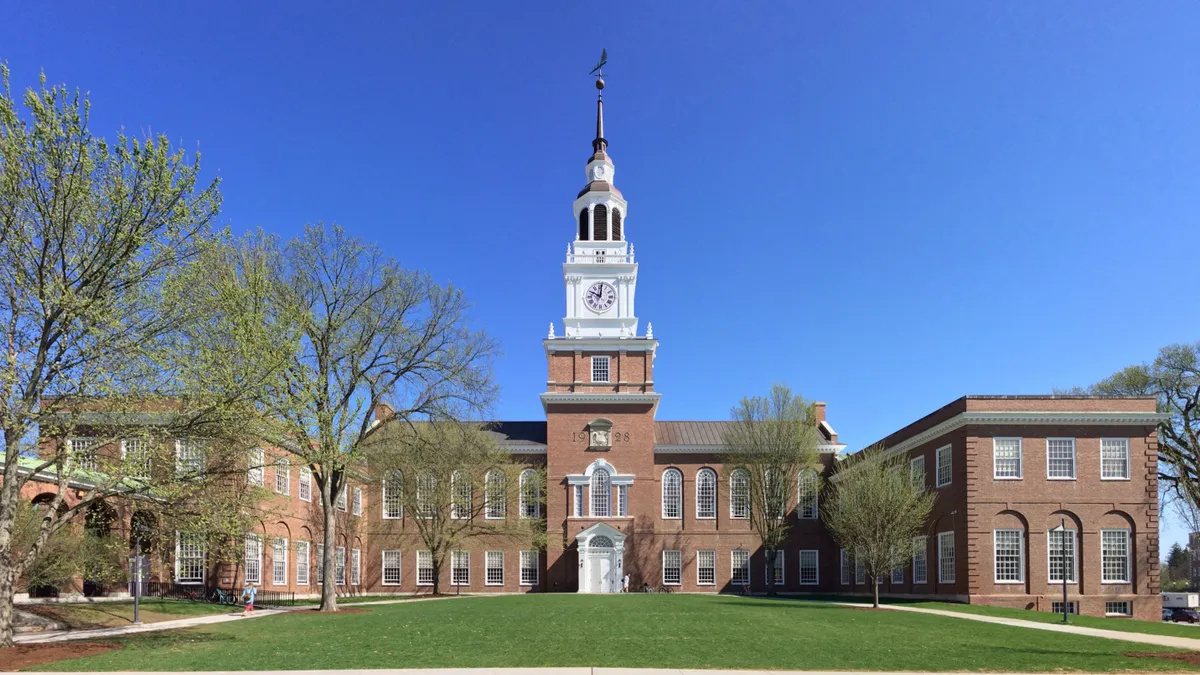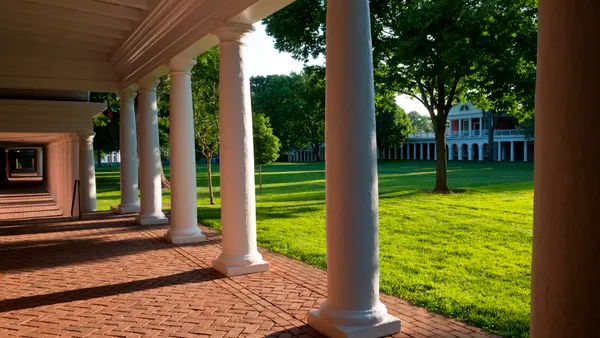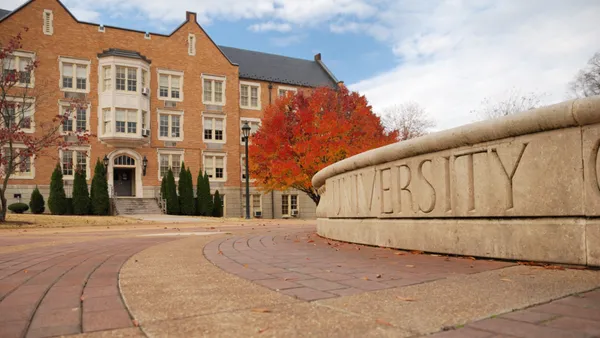Judith Wilde is research professor and James Finkelstein is professor emeritus in the Schar School of Policy and Government at George Mason University.
This is the second of three pieces in a series they wrote examining changes in the way college presidents are hired. The first is available here.
In our previous article, we reported on a transformation in the way university presidents have been hired. Thirty years ago, a quarter of universities, mostly private, used an executive search firm. Today, nearly every governing board contracts with a search firm to assist in hiring a new president.
We are reminded of "Lesson Plan," written by William Bowen and Michael McPherson. They write, "A well-qualified board needs to take an active role in the search process and not be too dependent on search firms that may have their own agendas."
Few governing board members have experience in higher education, other than having gone to college. Given that virtually every governing board has outsourced its recent presidential searches to the executive search industry, we wanted to learn more about who leads these firms. Our assumption was that these individuals would compensate for the substantive expertise and experience trustees lack. We're sharing our findings here for the first time.
Sample
First we needed to identify the top search firms in the higher education sector. Hunt Scanlon Media, which bills itself as "the most widely referenced, single source for information in the human capital sector" publishes a list of the top 50 higher education recruiters. In addition, the American Council on Education Executive Search Roundtable has about 20 current members, both nonprofit and for-profit organizations.
We began constructing our sample from these two lists. While there was some overlap, several of the largest search firms were not members of the ACE Roundtable, and smaller members of the Roundtable weren't on the Hunt Scanlon list. To address this shortcoming, we added a Hunt Scanlon top 50 list of all recruiters — not just those on its higher education list — and the Forbes 2021 Best Executive Recruiters list. To be included in the sample, a firm had to be on at least two of these four lists.
Data
We collected data for 22 leaders at 21 search firms. We identified the leaders of firms that were exclusively or primarily focused on higher education and the principals of the higher education practices in the large multi-area firms. Using corporate biographies and LinkedIn pages, we determined each individual's highest academic degree, degree-granting institution, and primary discipline; years of experience in the talent acquisition industry and in higher education; and gender and race. For those with higher education work experience, we identified position and length of service.
Findings
While holding a terminal degree generally has been a requirement for university presidents, only seven of the 22 search firm leaders held doctorates. Of the remainder, eight held an undergraduate degree and seven had a master's degree. Similar numbers graduated from public versus private institutions.
We could identify the field of degrees earned by 21 search firm leaders. The most commonly earned degrees were in education, earned by seven members of our sample. There were five business-related degrees, five in the social and behavioral sciences, and four in the humanities. This latter group included degrees in Victorian literature, creative writing, English, and French language and literature.
We identified only one Black search firm leader. While among the least experienced in the executive search industry, he was one of only two individuals who had been a president, provost, dean, and tenured faculty member. He also had spent more years in higher education than any of the other search executives. We identified no other search firm executives who were not non-Hispanic white. The majority, 15, were women.
Perhaps the most important and troubling finding was how few of these leaders had higher education work experience of any type.
- Five leaders at four firms had been university presidents.
- Two leaders had been presidents, provosts and deans.
- Six leaders had worked in development, alumni relations, student housing and/or admissions.
- One leader had served as an executive assistant to a president.
- Three leaders appeared to have held tenure.
- One leader taught as a contingent faculty member.
So, while 10 of the firms can claim that their senior executive has some form of higher education experience, in fact only four of these are led by a former university president.
This data describes only the individuals leading these firms and practices. We acknowledge that many firms have multiple search consultants who lead and staff individual searches and who may have higher education experience. Nonetheless, the lack of higher education experience among these leaders was an unexpected finding.
Should we be concerned?
Remember the cautionary tale of John Sculley at Apple. While he was considered by many to be a marketing genius, he came to Apple from Pepsi with no experience in high technology. During his tenure, Apple grew in size, but Steve Jobs departed and a number of new products failed, ultimately leading to a nearly 85% decline in profits and significant layoffs. Sculley was forced to resign in 1993.
Or they remember the tech executive who was a president at Google, Margo Georgiadis, who then became the CEO of Mattel and lasted only 14 months. Or consider Eddie Lampbert, the hedge fund manager who became chairman and CEO of Sears Holdings. That story didn't have a happy ending either.
So, should we be concerned that the firms to which governing boards have outsourced their single most important responsibility — appointing a president — are led by individuals with little experience in higher education?












